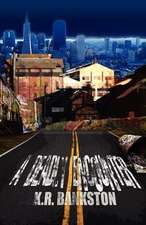The Cove: FBI Thriller
Autor Catherine Coulteren Limba Engleză Paperback – 31 mar 1996 – vârsta de la 18 ani
In this "fast-paced" (Publishers Weekly) page-turner, the daughter of a murdered high-powered lawyer seeks sanctuary in a quaint little town, only to learn she can't escape her past-or FBI Special Agent Dillon Savich.
In this "fast-paced" (Publishers Weekly) page-turner, the daughter of a murdered high-powered lawyer seeks sanctuary in a quaint little town, only to learn she can't escape her past-or FBI Special Agent Dillon Savich.
In this "fast-paced" (Publishers Weekly) page-turner, the daughter of a murdered high-powered lawyer seeks sanctuary in a quaint little town, only to learn she can't escape her past-or FBI Special Agent Dillon Savich.
Din seria FBI Thriller
-
 Preț: 53.95 lei
Preț: 53.95 lei -
 Preț: 63.89 lei
Preț: 63.89 lei -
 Preț: 65.13 lei
Preț: 65.13 lei -
 Preț: 58.94 lei
Preț: 58.94 lei -
 Preț: 50.69 lei
Preț: 50.69 lei -
 Preț: 53.71 lei
Preț: 53.71 lei -
 Preț: 57.71 lei
Preț: 57.71 lei -
 Preț: 63.46 lei
Preț: 63.46 lei -
 Preț: 106.59 lei
Preț: 106.59 lei -
 Preț: 137.32 lei
Preț: 137.32 lei - 15%
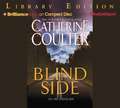 Preț: 502.69 lei
Preț: 502.69 lei -
 Preț: 98.52 lei
Preț: 98.52 lei -
 Preț: 68.11 lei
Preț: 68.11 lei
Preț: 55.85 lei
Nou
Puncte Express: 84
Preț estimativ în valută:
10.69€ • 11.19$ • 8.89£
10.69€ • 11.19$ • 8.89£
Carte disponibilă
Livrare economică 10-24 martie
Preluare comenzi: 021 569.72.76
Specificații
ISBN-13: 9780515118650
ISBN-10: 0515118656
Pagini: 366
Dimensiuni: 107 x 173 x 27 mm
Greutate: 0.19 kg
Editura: Jove Books
Seria FBI Thriller
ISBN-10: 0515118656
Pagini: 366
Dimensiuni: 107 x 173 x 27 mm
Greutate: 0.19 kg
Editura: Jove Books
Seria FBI Thriller
Recenzii
"Fantastic...Action-packed...Spine-tingling." —Affaire De Coeur
Extras
SOMEONE WAS WATCHING her. She tugged on the black wig, flattening it against her ears, and quickly put on another
coat of deep-red lipstick, holding the mirror up so
she could see behind her.
The young Marine saw her face in the mirror and
grinned at her. She jumped as if she’d been shot. Just stop
it. He’s harmless, he’s just flirting. He couldn’t be more
than eighteen, his head all shaved, his cheeks as smooth
as hers. She tilted the mirror to see more. The woman
sitting beside him was reading a Dick Francis novel. In
the seat behind them a young couple were leaning into
each other, asleep.
The seat in front of her was empty. The Greyhound
driver was whistling Eric Clapton’s ‘‘Tears in Heaven,’’
a song that always twisted up her insides. The only one
who seemed to notice her was that young Marine, who’d
gotten on at the last stop in Portland. He was probably
going home to see his eighteen-year-old girlfriend. He
wasn’t after her, surely, but someone was. She wouldn’t
be fooled again. They’d taught her so much. No, she’d
never be fooled again.
She put the mirror back into her purse and fastened the
flap. She stared at her fingers, at the white line where the
wedding ring had been until three days ago. She’d tried
to pull it off for the past six months but hadn’t managed
to do it. She had been too out of it even to fasten the
Velcro on her sneakers—when they allowed her sneakers—
much less work off a tight ring.
Soon, she thought, soon she would be safe. Her mother
would be safe too. Oh, God, Noelle—sobbing in the middle
of the night when she didn’t know anyone could hear
her. But without her there, they couldn’t do a thing to
Noelle. Odd how she rarely thought of Noelle as her
mother anymore, not like she had ten years before, when
Noelle had listened to all her teenage problems, taken her
shopping, driven her to her soccer games. So much they’d
done together. Before. Yes, before that night when she’d
seen her father slam his fist into her mother’s chest and
she’d heard the cracking of at least two ribs.
She’d run in, screaming at him to leave her mother
alone, and jumped on his back. He was so surprised, so
shocked, that he didn’t strike her. He shook her off,
turned, and shouted down at her, ‘‘Mind your own business,
Susan! This doesn’t concern you.’’ She stared at
him, all the fear and hatred she felt for him at that moment
clear on her face.
‘‘Doesn’t concern me? She’s my mother, you bastard.
Don’t you dare hit her again!’’
He looked calm, but she wasn’t fooled; she saw the
pulse pounding madly in his neck. ‘‘It was her fault, Susan.
Mind your own damned business. Do you hear me?
It was her fault.’’ He took a step toward her mother, his
fist raised. She picked up the Waterford carafe off his
desk, yelling, ‘‘Touch her and I’ll bash your head in.’’
He was panting now, turning swiftly to face her again,
no more calm expression to fool her. His face was distorted
with rage. ‘‘Bitch! Damned interfering little bitch!
I’ll make you pay for this, Susan. No one goes against
me, particularly a spoiled little girl who’s never done a
thing in her life except spend her father’s money.’’ He
didn’t hit Noelle again. He looked at both of them with
naked fury, then strode out of the house, slamming the
door behind him.
‘‘Yeah, right,’’ she said and very carefully and slowly
set the Waterford carafe down before she dropped it.
She wanted to call an ambulance but her mother
wouldn’t allow it. ‘‘You can’t,’’ she said, her voice as
cracked as her ribs. ‘‘You can’t, Sally. Your father would
be ruined, if anyone believed us. I can’t allow that to
happen.’’
‘‘He deserves to be ruined,’’ Sally said, but she obeyed.
She was only sixteen years old, home for the weekend
from her private girls’ school in Laurelberg, Virginia.
Why wouldn’t they be believed?
‘‘No, dearest,’’ her mother whispered, the pain bowing
her in on herself. ‘‘No. Get me that blue bottle of pills in
the medicine cabinet. Hurry, Sally. The blue bottle.’’
As she watched her mother swallow three of the pills,
groaning as she did so, she realized the pills were there
because her father had struck her mother before. Deep
down, Sally had known it. She hated herself because she’d
never asked, never said a word.
That night her mother became Noelle, and the next
week Sally left her girls’ school and moved back to her
parents’ home in Washington, D.C., in hopes of protecting
her mother. She read everything she could find on abuse—
not that it helped.
That was ten years ago, though sometimes it seemed
like last week. Noelle had stayed with her husband, refusing
to seek counseling, refusing to read any of the
books Sally brought her. It made no sense to Sally, but
she’d stayed as close as possible, until she’d met Scott
Brainerd at the Whistler exhibition at the National Gallery
of Art and married him two months later.
She didn’t want to think about Scott or about her father
now. Despite her vigilance, she knew her father had hit
Noelle whenever she happened to be gone from the house.
She’d seen the bruises her mother had tried to hide from
her, seen her walking carefully, like an old woman. Once
he broke her mother’s arm, but Noelle refused to go to
the hospital, to the doctor, and ordered Susan to keep
quiet. Her father just looked at her, daring her, and she
did nothing. Nothing.
Her fingers rubbed unconsciously over the white line
where the ring had been. She could remember the past so
clearly—her first day at school, when she was on the seesaw
and a little boy pointed, laughing that he saw her
panties.
It was just the past week that was a near blank in her
mind. The week her father had been killed. The whole
week was like a very long dream that had almost dissolved
into nothing more than an occasional wisp of memory
with the coming of the morning.
Sally knew she’d been at her parents’ house that night,
but she couldn’t remember anything more, at least nothing
she could grasp—just vague shadows that blurred, then
faded in and out. But they didn’t know that. They wanted
her badly, she’d realized that soon enough. If they
couldn’t use her to prove that Noelle had killed her husband,
why, then they’d take her and prove that she’d
killed her father. Why not? Other children had murdered
their fathers. Although there were plenty of times she’d
wanted to, she didn’t believe she’d killed him.
On the other hand, she just didn’t know. It was all a
blank, locked tightly away in her brain. She knew she was
capable of killing that bastard, but had she? There were
many people who could have wanted her father dead. Perhaps
they’d found out she’d been there after all. Yes, that
was it. She’d been a witness and they knew it. She probably
had been. She just didn’t remember.
She had to stay focused on the present. She looked out
the Greyhound window at the small town the bus was
going through. Ugly gray exhaust spewed out the back of
the bus. She bet the locals loved that.
They were driving along Highway 101 southwest. Just
another half hour, she thought, just thirty more minutes,
and she wouldn’t have to worry anymore, at least for a
while. She would take any safe time she could get. Soon
she wouldn’t have to be afraid of anyone who chanced to
look at her. No one knew about her aunt, no one.
She was terrified that the young Marine would get off
after her when she stepped down from the bus at the junction
of Highways 101 and 101A. But he didn’t. No one
did. She stood there with her one small bag, staring at the
young Marine, who’d turned around in his seat and was
looking back at her. She tamped down on her fear. He
just wanted to flirt, not hurt her. She thought he had lousy
taste in women. She watched for cars, but none were coming
from either direction.
She walked west along Highway 101A to The Cove.
Highway 101A didn’t go east.
‘‘Yes?’’
She stared at the woman she’d seen once in her life
when she was no more than seven years old. She looked
like a hippie, a colorful scarf wrapped around her long,
curling, dark hair, huge gold hoops dangling from her
ears, her skirt ankle-length and painted all in dark blues
and browns. She was wearing blue sneakers. Her face was
strong, her cheekbones high and prominent, her chin
sharp, her eyes dark and intelligent. Actually, she was the
most beautiful woman Sally had ever seen.
‘‘Aunt Amabel?’’
‘‘What did you say?’’ Amabel stared at the young
woman who stood on her front doorstep, a young woman
who didn’t look cheap with all that makeup she’d piled
on her face, just exhausted and sickly pale. And frightened.
Then, of course, she knew. She had known deep
down that she would come. Yes, she’d known, but it still
shook her.
‘‘I’m Sally,’’ she said and pulled off the black wig and
took out half a dozen hairpins. Thick, waving dark-blond
hair tumbled down to her shoulders. ‘‘Maybe you called
me Susan? Not many people do anymore.’’
6 Catherine Coulter
The woman was shaking her head back and forth, those
dazzling earrings slapping against her neck. ‘‘My God,
it’s really you, Sally?’’ She rocked back on her heels.
‘‘Yes, Aunt.’’
‘‘Oh, my,’’ Amabel said and quickly pulled her niece
against her, hugged her tightly, then pushed her back to
look at her. ‘‘Oh, my goodness. I’ve been so worried. I
finally heard the news about your papa, but I didn’t know
if I should call Noelle. You know how she is. I was going
to call her tonight when the rates go down, but you’re
here, Sally. I guess I hoped you’d come to me. What’s
happened? Is your mama all right?’’
‘‘Noelle is fine, I think,’’ Sally said. ‘‘I didn’t know
where else to go, so I came here. Can I stay here, Aunt
Amabel, just for a little while? Just until I can think of
something, make some plans?’’
‘‘Of course you can. Look at that black wig and all that
makeup on your face. Why, baby?’’
The endearment undid her. She’d not cried, not once,
until now, until this woman she didn’t really know called
her ‘‘baby.’’ Her aunt’s hands were stroking her back, her
voice was low and soothing. ‘‘It’s all right, lovey. I promise
you, everything will be all right now. Come in, Sally,
and I’ll take care of you. That’s what I told your mama
when I first saw you. You were the cutest little thing, so
skinny, your arms and legs wobbly like a colt’s, and the
biggest smile I’d ever seen. I wanted to take care of you
then. You’ll be safe here. Come on, baby.’’
The damnable tears wouldn’t stop. They just kept dripping
down her face, ruining the god-awful thick black
mascara. She even tasted it, and when she swiped her
hand over her face it came away with black streaks.
‘‘I look like a circus clown,’’ she said, swallowing hard
to stop the tears, to smile, to make herself smile. She took
out the green-colored contacts. With the crying, they hurt.
‘‘No, you look like a little girl trying on her mama’s
makeup. That’s right, take out those ugly contacts. Ah,
now you’ve got your pretty blue eyes again. Come to the
kitchen and I’ll make you some tea. I always put a drop
of brandy in mine. It wouldn’t hurt you one little bit. How
old are you now, Sally?’’
‘‘Twenty-six, I think.’’
‘‘What do you mean, you think?’’ her aunt said, cocking
her head to one side, making the gold hoop earring
hang straight down almost to her shoulder.
Sally couldn’t tell her that though she thought her birthday
had come and gone in that place, she couldn’t seem
to see the day in her mind, couldn’t dredge up anyone
saying anything to her, not that she could imagine it anyway.
She couldn’t even remember if her father had been
there. She prayed he hadn’t. She couldn’t tell Amabel
about that, she just couldn’t. She shook her head, smiled,
and said, not lying well, ‘‘It was just a way of speaking,
Aunt Amabel. I’d love some tea and a drop of brandy.’’
Amabel sat her niece down in the kitchen at her old
pine table that had three magazines under one leg to keep
it steady. At least she’d made cushions for the wooden
seats, so they were comfortable. She put the kettle on the
gas burner and turned it on. ‘‘There,’’ she said. ‘‘That
won’t take too long.’’
Sally watched her put a Lipton tea bag into each cup
and pour in the brandy. Amabel said, ‘‘I always pour the
brandy in first. It soaks into the tea bag and makes the
flavor stronger. Brandy’s expensive and I’ve got to make
it last. This bottle’’—she lifted the Christian Brothers—
‘‘is going on its third month. Not bad. You’ll see, you’ll
like it.’’
‘‘No one followed me, Aunt Amabel. I was really careful.
I imagine you know that everyone is after me. But I
managed to get away. As far as I know, no one knows
about you. Noelle never told a soul. Only Father knew
about you, and he’s dead.’’
Amabel just nodded. Sally sat quietly, watching Amabel
move around her small kitchen, each action smooth
8 Catherine Coulter
and efficient. She was graceful, this aunt of hers in her
hippie clothes. She looked at those strong hands, the long
fingers, the short, buffed nails painted an awesome bright
red. Amabel was an artist, she remembered that now. She
couldn’t see any resemblance at all to Noelle, Amabel’s
younger sister. Amabel was dark as a gypsy, while Noelle
was blond and fair-complexioned, blue-eyed and soft as
a pillow.
Like me, Sally thought. But Sally wasn’t soft anymore.
She was hard as a brick.
She waited, expecting Amabel to whip out a deck of
cards and tell her fortune. She wondered why none of
Noelle’s family ever spoke of Amabel. What had she done
that was so terrible?
Her fingers rubbed over the white band where the ring
had been. She said as she looked around the old kitchen
with its ancient refrigerator and porcelain sink, ‘‘You
don’t mind that I’m here, Aunt Amabel?’’
‘‘Call me Amabel, honey, that’ll be just fine. I don’t
mind at all. Both of us will protect your mama. As for
you, why, I don’t think you could hurt that little bug that’s
scurrying across the kitchen floor.’’
Sally shook her head, got out of her seat, and squashed
the bug beneath her heel. She sat down again. ‘‘I just want
you to see me as I really am,’’ she said.
Amabel only shrugged, turned back to the stove when
the teakettle whistled, and poured the water into the teacups.
She said, not turning around, ‘‘Things happen to
people, change them. Take your mama. Everyone always
protected your mama, including me. Why wouldn’t her
daughter do the same? You are protecting her, aren’t you,
Sally?’’
She handed Sally her cup of tea. She pulled the tea bag
back and forth, making the tea darker and darker. Finally,
she lifted the bag and placed it carefully on the saucer.
She’d swished that tea bag just the way her mother always
had when she’d been young. She took a drink, held the
brandied tea in her mouth a moment, then swallowed. The
tea was wonderful, thick, rich, and sinful. She felt less on
edge almost immediately. That brandy was something.
Surely she’d be safe here. Surely Amabel would take her
in just for a little while until she figured out what to do.
She imagined her aunt wanted to hear everything, but
she wasn’t pushing. Sally was immensely grateful for that.
‘‘I’ve often wondered what kind of woman you’d become,’’
Amabel said. ‘‘Looks to me like you’ve become
a fine one. This mess—and that’s what it is—it will pass.
Everything will be resolved, you’ll see.’’ She was silent
a moment, remembering the affection she’d felt for the
little girl, that bone-deep desire to keep her close, to hug
her until she squeaked. It surprised her that it was still
there. She didn’t like it, nor did she want it.
‘‘Careful of leaning on that end of the table, Sally. Purn
Davies wanted to fix it for me, but I wouldn’t let him.’’
She knew Sally wasn’t hearing her, but it didn’t matter,
Amabel was just making noise until Sally got some of
that brandy in her belly.
‘‘This tea’s something else, Amabel. Strange, but
good.’’ She took another drink, then another. She felt
warmth pooling in her stomach. She realized she hadn’t
felt this warm in more than five days.
‘‘You might as well tell me now, Sally. You came here
so you could protect your mama, didn’t you, baby?’’
Sally took another big drink of the tea. What could she
say? She said nothing.
‘‘Did your mama kill your papa?’’
Sally set down her cup and stared into it, wishing she
knew the truth of things, but that night was as murky in
her mind as the tea in the bottom of her cup. ‘‘I don’t
know,’’ she said finally. ‘‘I just don’t know, but they think
I do. They think I’m either protecting Noelle or running
because I did it. They’re trying to find me. I didn’t want
to take a chance, so that’s why I’m here.’’
Was she lying? Amabel didn’t say anything. She
10 Catherine Coulter
merely smiled at her niece, who looked exhausted, her
face white and pinched, her lovely blue eyes as faded and
worn as an old dress. She was too thin; her sweater and
slacks hung on her. In that moment her niece looked very
old, as if she had seen too much of the wicked side of
life. Well, it was too bad, but there was more wickedness
in the world than anyone cared to admit.
She said quietly as she stared down into her teacup, ‘‘If
your mama did kill her husband, I’ll bet the bastard deserved
it.’’
coat of deep-red lipstick, holding the mirror up so
she could see behind her.
The young Marine saw her face in the mirror and
grinned at her. She jumped as if she’d been shot. Just stop
it. He’s harmless, he’s just flirting. He couldn’t be more
than eighteen, his head all shaved, his cheeks as smooth
as hers. She tilted the mirror to see more. The woman
sitting beside him was reading a Dick Francis novel. In
the seat behind them a young couple were leaning into
each other, asleep.
The seat in front of her was empty. The Greyhound
driver was whistling Eric Clapton’s ‘‘Tears in Heaven,’’
a song that always twisted up her insides. The only one
who seemed to notice her was that young Marine, who’d
gotten on at the last stop in Portland. He was probably
going home to see his eighteen-year-old girlfriend. He
wasn’t after her, surely, but someone was. She wouldn’t
be fooled again. They’d taught her so much. No, she’d
never be fooled again.
She put the mirror back into her purse and fastened the
flap. She stared at her fingers, at the white line where the
wedding ring had been until three days ago. She’d tried
to pull it off for the past six months but hadn’t managed
to do it. She had been too out of it even to fasten the
Velcro on her sneakers—when they allowed her sneakers—
much less work off a tight ring.
Soon, she thought, soon she would be safe. Her mother
would be safe too. Oh, God, Noelle—sobbing in the middle
of the night when she didn’t know anyone could hear
her. But without her there, they couldn’t do a thing to
Noelle. Odd how she rarely thought of Noelle as her
mother anymore, not like she had ten years before, when
Noelle had listened to all her teenage problems, taken her
shopping, driven her to her soccer games. So much they’d
done together. Before. Yes, before that night when she’d
seen her father slam his fist into her mother’s chest and
she’d heard the cracking of at least two ribs.
She’d run in, screaming at him to leave her mother
alone, and jumped on his back. He was so surprised, so
shocked, that he didn’t strike her. He shook her off,
turned, and shouted down at her, ‘‘Mind your own business,
Susan! This doesn’t concern you.’’ She stared at
him, all the fear and hatred she felt for him at that moment
clear on her face.
‘‘Doesn’t concern me? She’s my mother, you bastard.
Don’t you dare hit her again!’’
He looked calm, but she wasn’t fooled; she saw the
pulse pounding madly in his neck. ‘‘It was her fault, Susan.
Mind your own damned business. Do you hear me?
It was her fault.’’ He took a step toward her mother, his
fist raised. She picked up the Waterford carafe off his
desk, yelling, ‘‘Touch her and I’ll bash your head in.’’
He was panting now, turning swiftly to face her again,
no more calm expression to fool her. His face was distorted
with rage. ‘‘Bitch! Damned interfering little bitch!
I’ll make you pay for this, Susan. No one goes against
me, particularly a spoiled little girl who’s never done a
thing in her life except spend her father’s money.’’ He
didn’t hit Noelle again. He looked at both of them with
naked fury, then strode out of the house, slamming the
door behind him.
‘‘Yeah, right,’’ she said and very carefully and slowly
set the Waterford carafe down before she dropped it.
She wanted to call an ambulance but her mother
wouldn’t allow it. ‘‘You can’t,’’ she said, her voice as
cracked as her ribs. ‘‘You can’t, Sally. Your father would
be ruined, if anyone believed us. I can’t allow that to
happen.’’
‘‘He deserves to be ruined,’’ Sally said, but she obeyed.
She was only sixteen years old, home for the weekend
from her private girls’ school in Laurelberg, Virginia.
Why wouldn’t they be believed?
‘‘No, dearest,’’ her mother whispered, the pain bowing
her in on herself. ‘‘No. Get me that blue bottle of pills in
the medicine cabinet. Hurry, Sally. The blue bottle.’’
As she watched her mother swallow three of the pills,
groaning as she did so, she realized the pills were there
because her father had struck her mother before. Deep
down, Sally had known it. She hated herself because she’d
never asked, never said a word.
That night her mother became Noelle, and the next
week Sally left her girls’ school and moved back to her
parents’ home in Washington, D.C., in hopes of protecting
her mother. She read everything she could find on abuse—
not that it helped.
That was ten years ago, though sometimes it seemed
like last week. Noelle had stayed with her husband, refusing
to seek counseling, refusing to read any of the
books Sally brought her. It made no sense to Sally, but
she’d stayed as close as possible, until she’d met Scott
Brainerd at the Whistler exhibition at the National Gallery
of Art and married him two months later.
She didn’t want to think about Scott or about her father
now. Despite her vigilance, she knew her father had hit
Noelle whenever she happened to be gone from the house.
She’d seen the bruises her mother had tried to hide from
her, seen her walking carefully, like an old woman. Once
he broke her mother’s arm, but Noelle refused to go to
the hospital, to the doctor, and ordered Susan to keep
quiet. Her father just looked at her, daring her, and she
did nothing. Nothing.
Her fingers rubbed unconsciously over the white line
where the ring had been. She could remember the past so
clearly—her first day at school, when she was on the seesaw
and a little boy pointed, laughing that he saw her
panties.
It was just the past week that was a near blank in her
mind. The week her father had been killed. The whole
week was like a very long dream that had almost dissolved
into nothing more than an occasional wisp of memory
with the coming of the morning.
Sally knew she’d been at her parents’ house that night,
but she couldn’t remember anything more, at least nothing
she could grasp—just vague shadows that blurred, then
faded in and out. But they didn’t know that. They wanted
her badly, she’d realized that soon enough. If they
couldn’t use her to prove that Noelle had killed her husband,
why, then they’d take her and prove that she’d
killed her father. Why not? Other children had murdered
their fathers. Although there were plenty of times she’d
wanted to, she didn’t believe she’d killed him.
On the other hand, she just didn’t know. It was all a
blank, locked tightly away in her brain. She knew she was
capable of killing that bastard, but had she? There were
many people who could have wanted her father dead. Perhaps
they’d found out she’d been there after all. Yes, that
was it. She’d been a witness and they knew it. She probably
had been. She just didn’t remember.
She had to stay focused on the present. She looked out
the Greyhound window at the small town the bus was
going through. Ugly gray exhaust spewed out the back of
the bus. She bet the locals loved that.
They were driving along Highway 101 southwest. Just
another half hour, she thought, just thirty more minutes,
and she wouldn’t have to worry anymore, at least for a
while. She would take any safe time she could get. Soon
she wouldn’t have to be afraid of anyone who chanced to
look at her. No one knew about her aunt, no one.
She was terrified that the young Marine would get off
after her when she stepped down from the bus at the junction
of Highways 101 and 101A. But he didn’t. No one
did. She stood there with her one small bag, staring at the
young Marine, who’d turned around in his seat and was
looking back at her. She tamped down on her fear. He
just wanted to flirt, not hurt her. She thought he had lousy
taste in women. She watched for cars, but none were coming
from either direction.
She walked west along Highway 101A to The Cove.
Highway 101A didn’t go east.
‘‘Yes?’’
She stared at the woman she’d seen once in her life
when she was no more than seven years old. She looked
like a hippie, a colorful scarf wrapped around her long,
curling, dark hair, huge gold hoops dangling from her
ears, her skirt ankle-length and painted all in dark blues
and browns. She was wearing blue sneakers. Her face was
strong, her cheekbones high and prominent, her chin
sharp, her eyes dark and intelligent. Actually, she was the
most beautiful woman Sally had ever seen.
‘‘Aunt Amabel?’’
‘‘What did you say?’’ Amabel stared at the young
woman who stood on her front doorstep, a young woman
who didn’t look cheap with all that makeup she’d piled
on her face, just exhausted and sickly pale. And frightened.
Then, of course, she knew. She had known deep
down that she would come. Yes, she’d known, but it still
shook her.
‘‘I’m Sally,’’ she said and pulled off the black wig and
took out half a dozen hairpins. Thick, waving dark-blond
hair tumbled down to her shoulders. ‘‘Maybe you called
me Susan? Not many people do anymore.’’
6 Catherine Coulter
The woman was shaking her head back and forth, those
dazzling earrings slapping against her neck. ‘‘My God,
it’s really you, Sally?’’ She rocked back on her heels.
‘‘Yes, Aunt.’’
‘‘Oh, my,’’ Amabel said and quickly pulled her niece
against her, hugged her tightly, then pushed her back to
look at her. ‘‘Oh, my goodness. I’ve been so worried. I
finally heard the news about your papa, but I didn’t know
if I should call Noelle. You know how she is. I was going
to call her tonight when the rates go down, but you’re
here, Sally. I guess I hoped you’d come to me. What’s
happened? Is your mama all right?’’
‘‘Noelle is fine, I think,’’ Sally said. ‘‘I didn’t know
where else to go, so I came here. Can I stay here, Aunt
Amabel, just for a little while? Just until I can think of
something, make some plans?’’
‘‘Of course you can. Look at that black wig and all that
makeup on your face. Why, baby?’’
The endearment undid her. She’d not cried, not once,
until now, until this woman she didn’t really know called
her ‘‘baby.’’ Her aunt’s hands were stroking her back, her
voice was low and soothing. ‘‘It’s all right, lovey. I promise
you, everything will be all right now. Come in, Sally,
and I’ll take care of you. That’s what I told your mama
when I first saw you. You were the cutest little thing, so
skinny, your arms and legs wobbly like a colt’s, and the
biggest smile I’d ever seen. I wanted to take care of you
then. You’ll be safe here. Come on, baby.’’
The damnable tears wouldn’t stop. They just kept dripping
down her face, ruining the god-awful thick black
mascara. She even tasted it, and when she swiped her
hand over her face it came away with black streaks.
‘‘I look like a circus clown,’’ she said, swallowing hard
to stop the tears, to smile, to make herself smile. She took
out the green-colored contacts. With the crying, they hurt.
‘‘No, you look like a little girl trying on her mama’s
makeup. That’s right, take out those ugly contacts. Ah,
now you’ve got your pretty blue eyes again. Come to the
kitchen and I’ll make you some tea. I always put a drop
of brandy in mine. It wouldn’t hurt you one little bit. How
old are you now, Sally?’’
‘‘Twenty-six, I think.’’
‘‘What do you mean, you think?’’ her aunt said, cocking
her head to one side, making the gold hoop earring
hang straight down almost to her shoulder.
Sally couldn’t tell her that though she thought her birthday
had come and gone in that place, she couldn’t seem
to see the day in her mind, couldn’t dredge up anyone
saying anything to her, not that she could imagine it anyway.
She couldn’t even remember if her father had been
there. She prayed he hadn’t. She couldn’t tell Amabel
about that, she just couldn’t. She shook her head, smiled,
and said, not lying well, ‘‘It was just a way of speaking,
Aunt Amabel. I’d love some tea and a drop of brandy.’’
Amabel sat her niece down in the kitchen at her old
pine table that had three magazines under one leg to keep
it steady. At least she’d made cushions for the wooden
seats, so they were comfortable. She put the kettle on the
gas burner and turned it on. ‘‘There,’’ she said. ‘‘That
won’t take too long.’’
Sally watched her put a Lipton tea bag into each cup
and pour in the brandy. Amabel said, ‘‘I always pour the
brandy in first. It soaks into the tea bag and makes the
flavor stronger. Brandy’s expensive and I’ve got to make
it last. This bottle’’—she lifted the Christian Brothers—
‘‘is going on its third month. Not bad. You’ll see, you’ll
like it.’’
‘‘No one followed me, Aunt Amabel. I was really careful.
I imagine you know that everyone is after me. But I
managed to get away. As far as I know, no one knows
about you. Noelle never told a soul. Only Father knew
about you, and he’s dead.’’
Amabel just nodded. Sally sat quietly, watching Amabel
move around her small kitchen, each action smooth
8 Catherine Coulter
and efficient. She was graceful, this aunt of hers in her
hippie clothes. She looked at those strong hands, the long
fingers, the short, buffed nails painted an awesome bright
red. Amabel was an artist, she remembered that now. She
couldn’t see any resemblance at all to Noelle, Amabel’s
younger sister. Amabel was dark as a gypsy, while Noelle
was blond and fair-complexioned, blue-eyed and soft as
a pillow.
Like me, Sally thought. But Sally wasn’t soft anymore.
She was hard as a brick.
She waited, expecting Amabel to whip out a deck of
cards and tell her fortune. She wondered why none of
Noelle’s family ever spoke of Amabel. What had she done
that was so terrible?
Her fingers rubbed over the white band where the ring
had been. She said as she looked around the old kitchen
with its ancient refrigerator and porcelain sink, ‘‘You
don’t mind that I’m here, Aunt Amabel?’’
‘‘Call me Amabel, honey, that’ll be just fine. I don’t
mind at all. Both of us will protect your mama. As for
you, why, I don’t think you could hurt that little bug that’s
scurrying across the kitchen floor.’’
Sally shook her head, got out of her seat, and squashed
the bug beneath her heel. She sat down again. ‘‘I just want
you to see me as I really am,’’ she said.
Amabel only shrugged, turned back to the stove when
the teakettle whistled, and poured the water into the teacups.
She said, not turning around, ‘‘Things happen to
people, change them. Take your mama. Everyone always
protected your mama, including me. Why wouldn’t her
daughter do the same? You are protecting her, aren’t you,
Sally?’’
She handed Sally her cup of tea. She pulled the tea bag
back and forth, making the tea darker and darker. Finally,
she lifted the bag and placed it carefully on the saucer.
She’d swished that tea bag just the way her mother always
had when she’d been young. She took a drink, held the
brandied tea in her mouth a moment, then swallowed. The
tea was wonderful, thick, rich, and sinful. She felt less on
edge almost immediately. That brandy was something.
Surely she’d be safe here. Surely Amabel would take her
in just for a little while until she figured out what to do.
She imagined her aunt wanted to hear everything, but
she wasn’t pushing. Sally was immensely grateful for that.
‘‘I’ve often wondered what kind of woman you’d become,’’
Amabel said. ‘‘Looks to me like you’ve become
a fine one. This mess—and that’s what it is—it will pass.
Everything will be resolved, you’ll see.’’ She was silent
a moment, remembering the affection she’d felt for the
little girl, that bone-deep desire to keep her close, to hug
her until she squeaked. It surprised her that it was still
there. She didn’t like it, nor did she want it.
‘‘Careful of leaning on that end of the table, Sally. Purn
Davies wanted to fix it for me, but I wouldn’t let him.’’
She knew Sally wasn’t hearing her, but it didn’t matter,
Amabel was just making noise until Sally got some of
that brandy in her belly.
‘‘This tea’s something else, Amabel. Strange, but
good.’’ She took another drink, then another. She felt
warmth pooling in her stomach. She realized she hadn’t
felt this warm in more than five days.
‘‘You might as well tell me now, Sally. You came here
so you could protect your mama, didn’t you, baby?’’
Sally took another big drink of the tea. What could she
say? She said nothing.
‘‘Did your mama kill your papa?’’
Sally set down her cup and stared into it, wishing she
knew the truth of things, but that night was as murky in
her mind as the tea in the bottom of her cup. ‘‘I don’t
know,’’ she said finally. ‘‘I just don’t know, but they think
I do. They think I’m either protecting Noelle or running
because I did it. They’re trying to find me. I didn’t want
to take a chance, so that’s why I’m here.’’
Was she lying? Amabel didn’t say anything. She
10 Catherine Coulter
merely smiled at her niece, who looked exhausted, her
face white and pinched, her lovely blue eyes as faded and
worn as an old dress. She was too thin; her sweater and
slacks hung on her. In that moment her niece looked very
old, as if she had seen too much of the wicked side of
life. Well, it was too bad, but there was more wickedness
in the world than anyone cared to admit.
She said quietly as she stared down into her teacup, ‘‘If
your mama did kill her husband, I’ll bet the bastard deserved
it.’’
Descriere
Into the Cove comes Sally Brainerd, daughter of murdered Amory St. John of Washington, D.C., seeking sanctuary, and FBI Special Agent James Quinlan who's undercover and afer her. He's got a murder to solve, and he believes she's the key. But is she really?

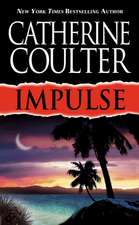
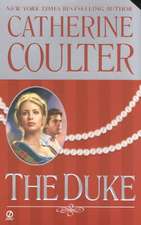

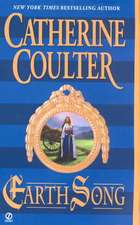
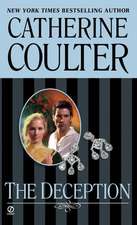

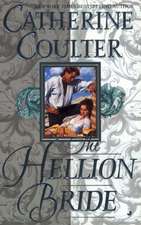
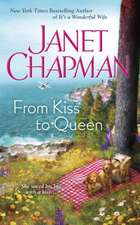

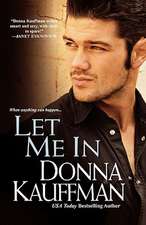
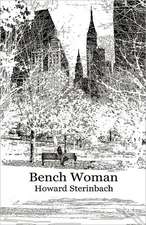
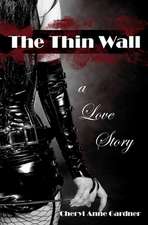

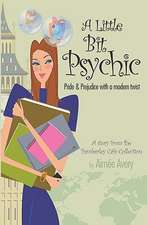

![The Seductress [Song of the Sirens 1]](https://i4.books-express.ro/bt/9781606014097/the-seductress-song-of-the-sirens-1.jpg)
